Dot your i’s and cross your t’s because this outdoor event planning checklist is one to double check. You don’t have to be in the events industry to know that rain, hail or shine outdoor events must proceed, (even without an indoor space available). Outdoor event planning welcomes an entirely different layer of organisation so it’s a good thing that we are well versed in it. We’ve taken a look back at the last 12 years of successful event planning to curate a one stop outdoor event planning checklist ready for your next outdoor event.

Types of outdoor events
Before commencing the planning stage a company must understand the type of event they will be running. There are a number of considerations that should be made ahead of choosing the event including:
- Event goals and objectives
- Event budget
- Outdoor venue availability
- Number of guests vs capacity of the venue
Once these key considerations are made the company can understand the type of event they will run. Ideas may include:
- Fete
- Pop-up-shop
- Activation
- Festival
- Party
- Wedding
Once the type of outdoor event is deciphered, the next stage moves into the planning.

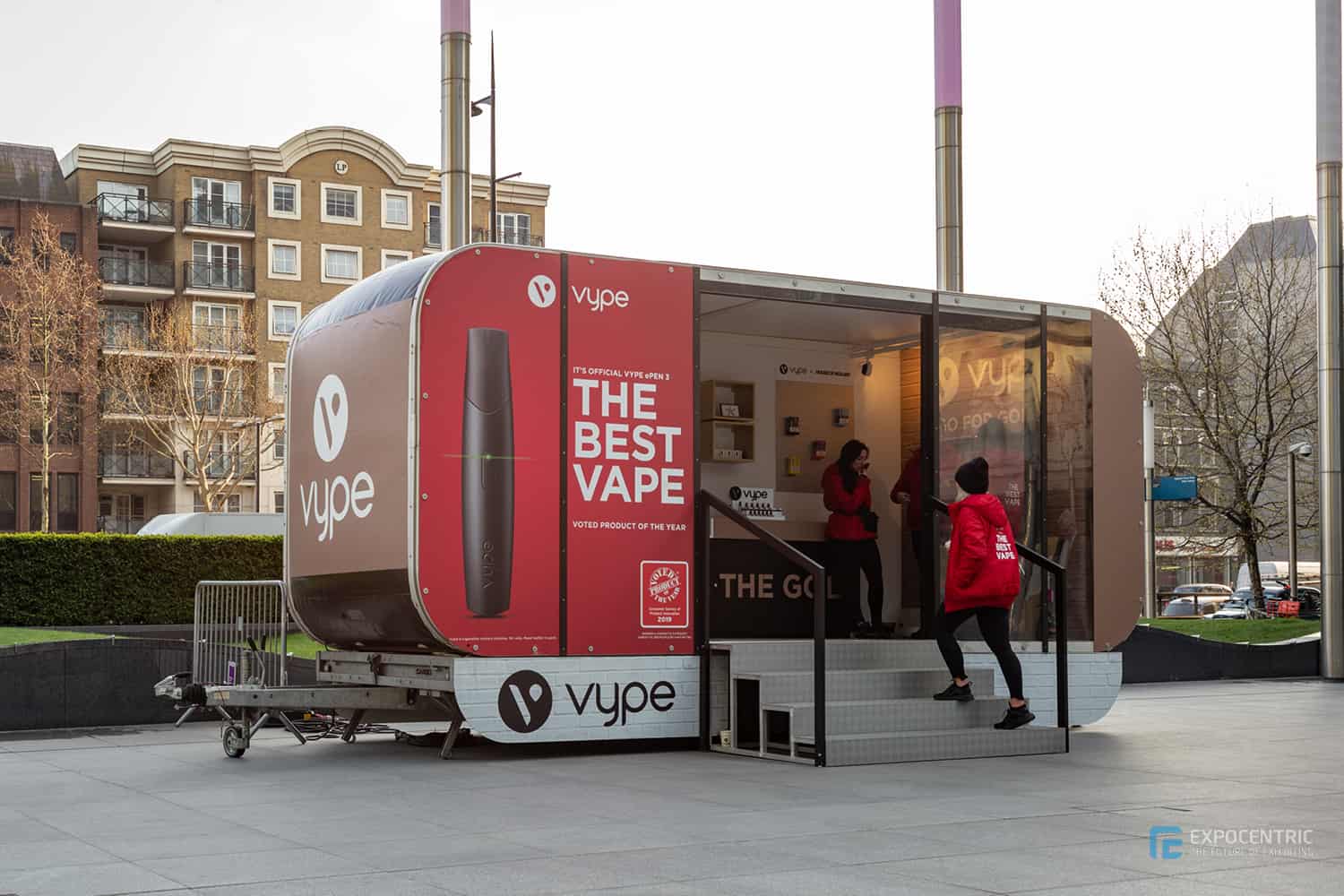

How to plan an outdoor event
The key to a successful event comes from having a robust planning process. Ahead of planning a company should ensure that its budget and objectives are confirmed as this will remain the pillar of any decisions made throughout the process.
A successful outdoor event planning checklist should align strongly with the event’s timeline, to ensure nothing is missed.
Timeline
The event timeline should be broken down into three categories, pre-event, during the event, and post-event.
TIP: Whilst reading through the following timeline, jot down your company’s equivalent requirements to start forming your own checklist.

Pre-event
As the name suggests, pre-event planning considers all areas of the business a company should consider planning for in the lead-up to events regardless of whether they are smaller or larger events.
Marketing
Marketing considers all practices a company will take to spread awareness of its event ahead of its commencement. Traditionally marketing considers both above and below-the-line activities and all should be worked within the timeline.
Above-the-line marketing
- Booking placements and schedules
- Distributing materials
- Performance tracking setup
Below-the-line marketing
- Social media calendar and scheduling
- Paid media planning
- eDM planning & distribution

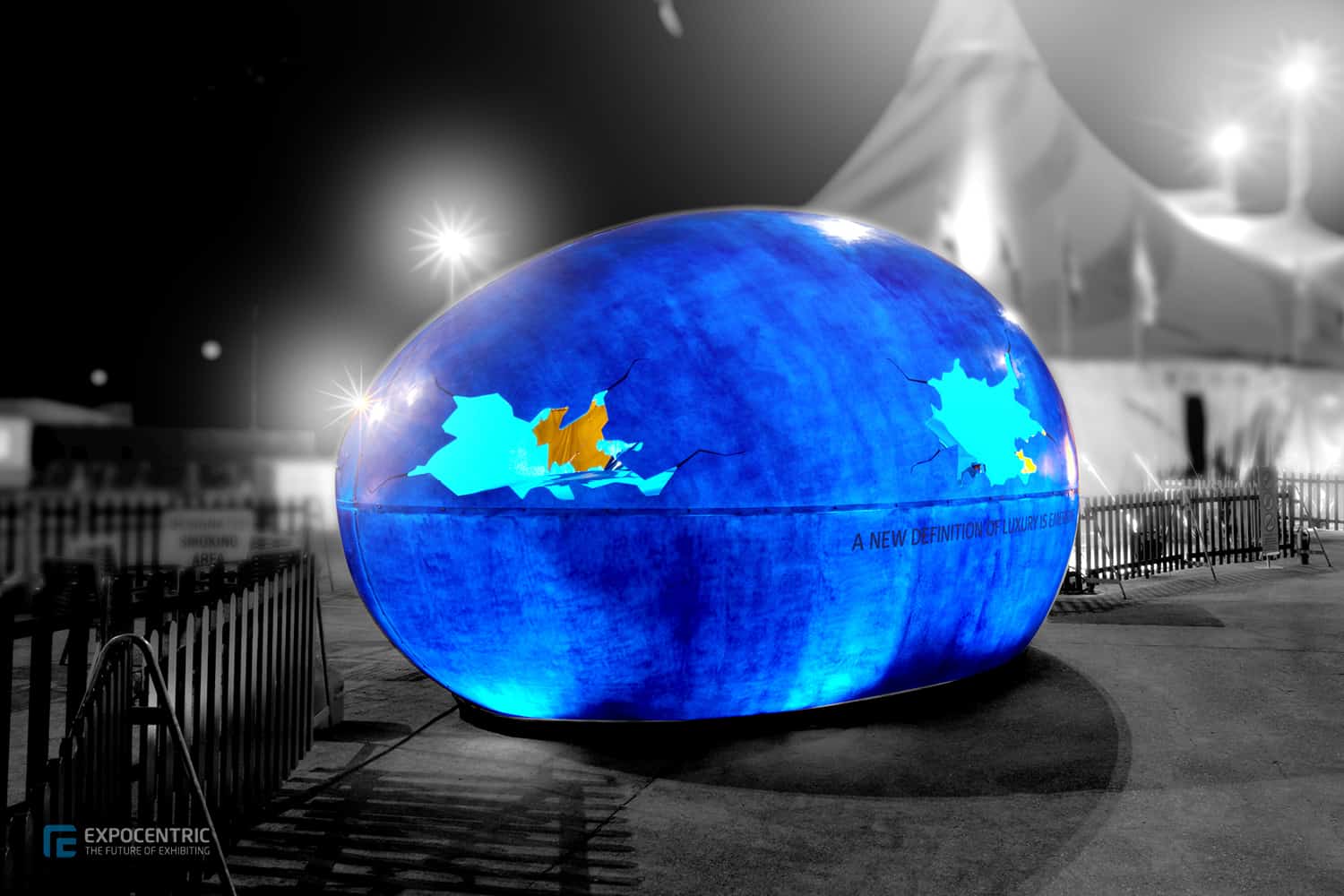

Venue & Floor Plan
Once the venue is considered, companies should consider the layout of their event to map out where all logistical items should be placed. When considering the floor plan look to maximise travel efficiencies for patrons, and minimise areas of high traffic. This will ensure a steady flow of attendees can move within the outdoor event.
Pending the location and the logistical requirements of stakeholders, floor plans for outdoor events may require a number of revisions, so ensure an open conversion is maintained with stakeholders and that considerable time is left, particularly for big events.
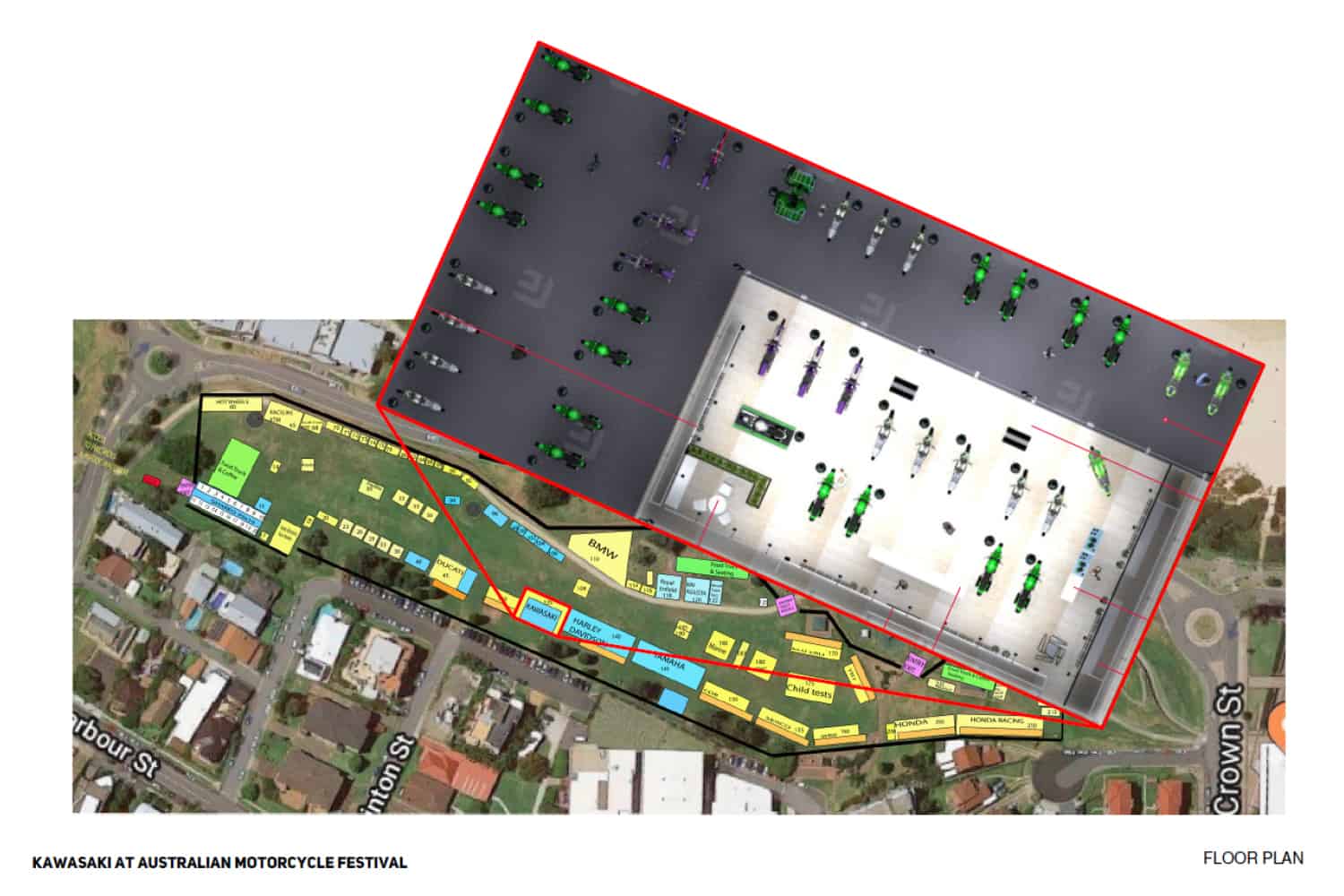

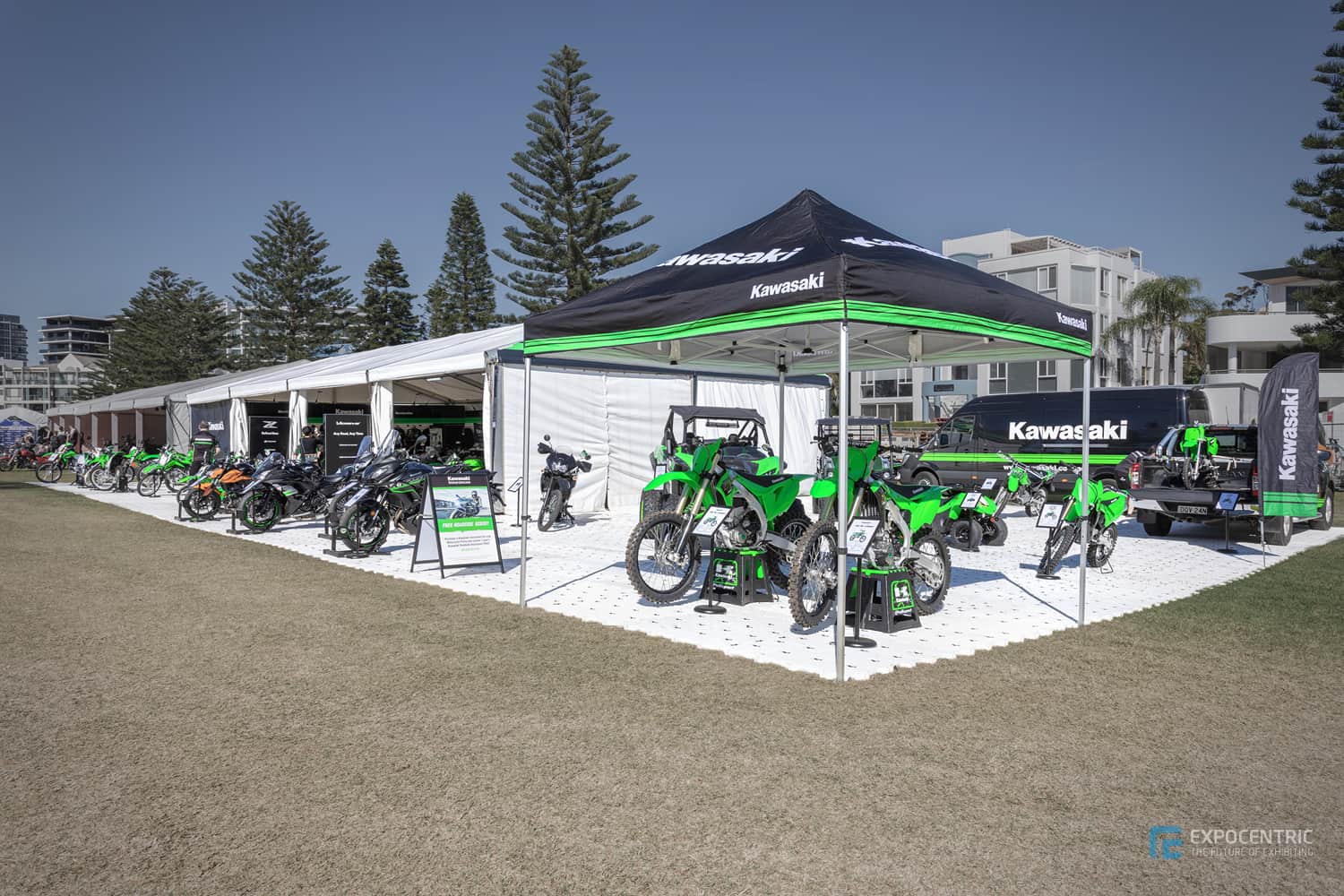
Inviting Guests
From an outdoor event to balls, the host will likely have a number of guests that need to be invited. In the lead-up to the event ensure that items to do with inviting guests are complete which may include:
- drafting the guest list based on the purpose behind these guests
- drafting the invitation
- distributing the invitation
- understanding the RSVP requirements and process of tracking
- determine the processes used to follow up with guests that haven’t responded
- distribute specific information required for special guests including information about the event, access points, timing, and parking.
For events that don’t require special guests, companies should look to understand the number of attendees they’ll have onsite. Depending on the type of event an accurate estimate can occur, for example, a school fete can look at the number of students and estimate their family members. For public events, companies can look to set up an RSVP list or Facebook event for attendees to express interest through. Once the number of attendees is confirmed, the event managers can coordinate logistics.
Logistics
In short, logistics are ‘everything that needs to be coordinated for the day’ to make your event a success. Whilst outdoor events differ from one another, the preparation of logistics will remain the same. Introducing the run sheet aka the bible that will piece together the event. The run sheet will detail the timings of everything that needs to be done ensuring it’s in the right place at the right time. Within the run sheet event managers should have:
- Arrival time
- Arrival location
- Stakeholder or vendor name & contact details
The more detailed the run sheet is, the better prepared the outdoor event will be.
During the Event
With all pre-event preparations complete, the checklist shifts to items that need to be coordinated and considered onsite. There are four key pieces that need to be considered. It is important to note that these items, whilst should be coordinated in the lead-up to the event, are listed as ‘during the event’ considerations because they will need continual management throughout the outdoor event.
Weather
What is your backup plan? The most unpredictable part of planning an outdoor event is the weather and whilst the radar may say a perfect 25 degrees and sunny, it isn’t unusual for the clouds to come over, the pouring rain to start, and the wind to pick up without any warning.
Event planners should start planning their backup plan in advance to ensure that should poor weather arrive, the event can be pivoted to either a different date or location.
Entertainment
At any type of event, regardless of whether it is outdoor there will likely be some sort of entertainment. The types of entertainment will differ depending on the event and budget but may include presentations from speakers, live music, children’s games, fireworks, the list goes on. During the event, it is essential to ensure all speakers understand their run times and other vendors are familiar with how to access and the layout of the event.

Catering
Arguably one of the most important elements of the event is food, and the pressure is on society to provide good food. There are a number of ways an outdoor event can look at serving food, with food trucks and catering being some of the most popular and efficient ways at events these days. Some events may also look at serving alcohol however companies should understand the rules and regulations around doing this to ensure there is safe service of alcohol.
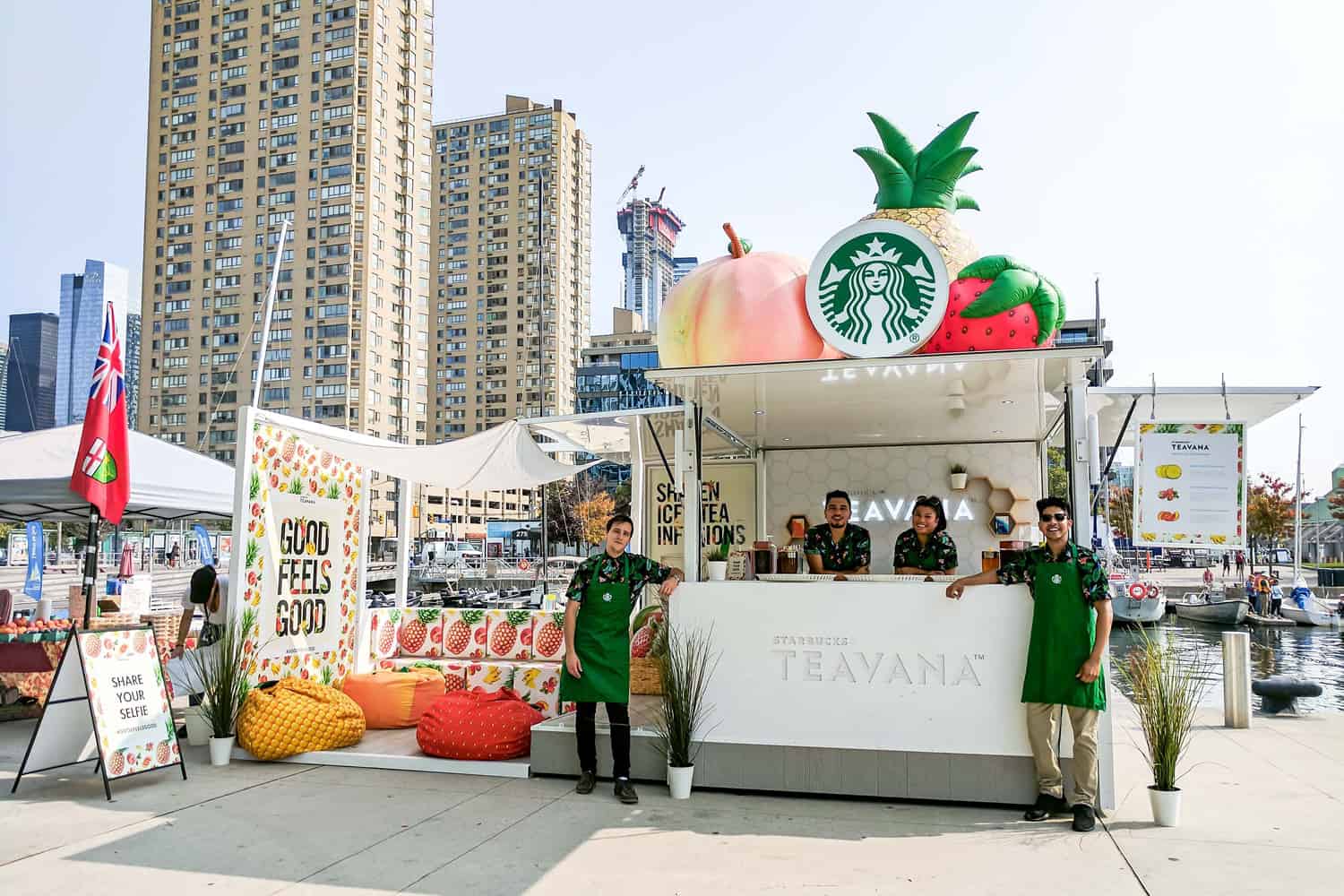

Toilets
Equally as important as catering (but far less glamorous), is access to toilets when on site. A common solution to toilets when at an outdoor venue is utilising portable toilets. Alongside this, event companies should ensure that there is easy access for portable toilets to be delivered and for participants to access them throughout the event. Consideration should be given to whether it will be a big event to understand the number of toilets that will be required.
Post-event
With the event complete, many believe the checklist has finished, however, there are two final checklist items required at the completion of every event.
Surveys
If running a public event, companies may want to consider distributing a survey to participants to understand their satisfaction with the event and whether there is any constructive feedback. A survey should be distributed within the week following the event to ensure it remains top of mind and should remain anonymous to ensure accurate feedback is provided.
Thank yous
The checklist item for any event is coordinating the thank yous. Don’t forget to thank attendees for coming, express gratitude to special guests, and touch base with other stakeholders. This ensures relationships are maintained between the events and will further support future outdoor events the company coordinates.


The checklist
With the event process complete, we have collated a short summary of our event planning checklist for your company to adapt to its next event.
Pre-Event
- Marketing
- Above the line
- Below the line
- Venue & Floor Plan
- Inviting Guests & Capacity
- Logistics
During the Event
- Weather & Contingency Plan
- Entertainment
- Catering
- Toilets
Post Event
- Event Survey
- Thank yous
Has how much you need to organize just dawned on you? Chat with someone from our team today, who can support your outdoor event planning, or simply plan the event for you.
